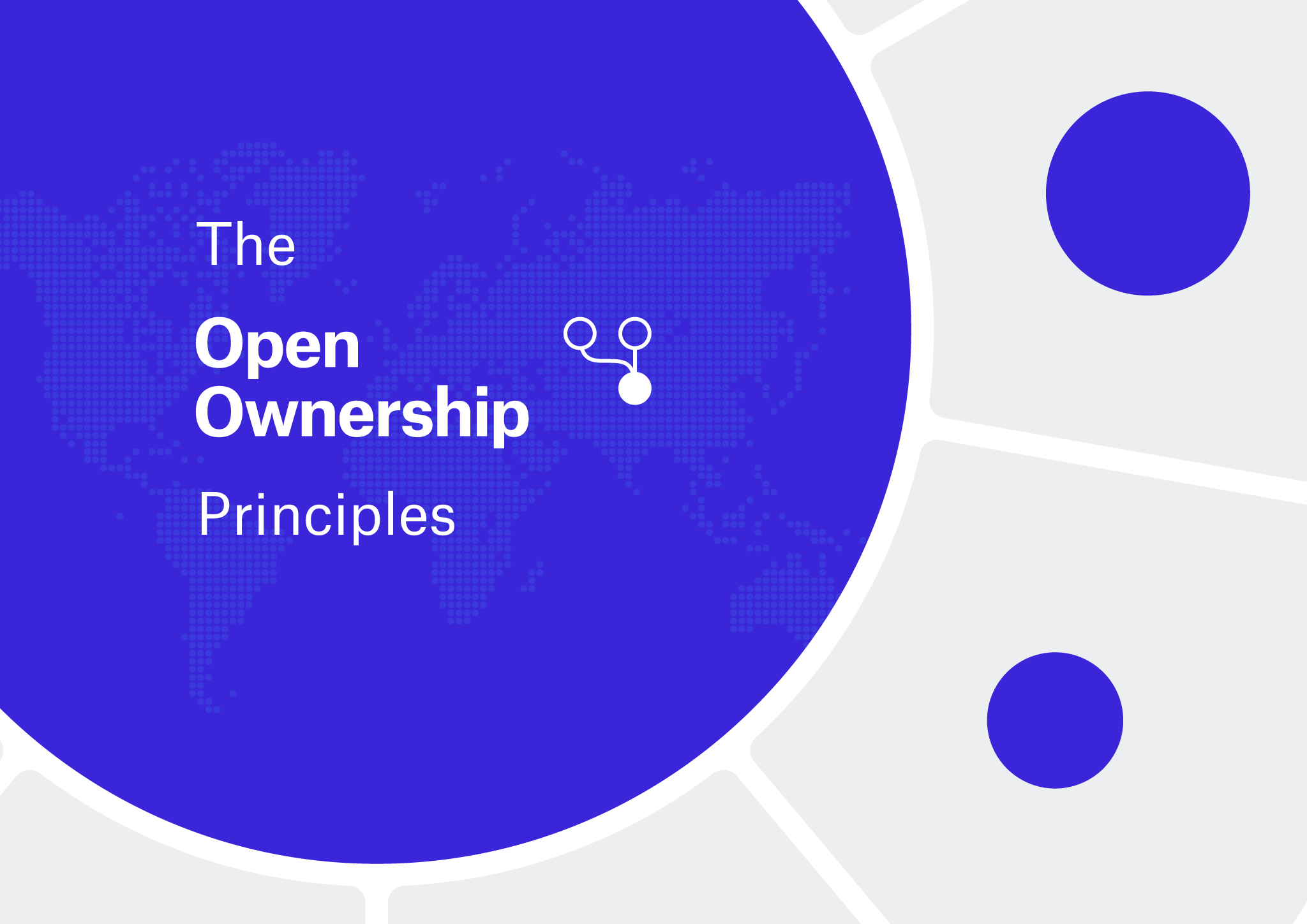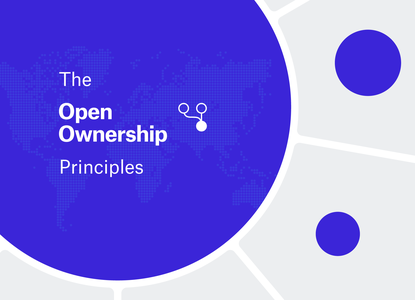The Open Ownership Principles: Setting the standard for beneficial ownership transparency

The Open Ownership Principles (OO Principles) are the gold standard for good governance through transparent company ownership.
By implementing the OO Principles, countries will build a comprehensive picture of who owns companies in their jurisdiction, thereby unlocking the potential of BO data to reduce corruption, ensuring all businesses know who they are working with, and encouraging sustainable inward investment.
Without a holistic implementation, as set out in the OO Principles, countries leave their legislation and system vulnerable to loopholes that allow criminal and corrupt enterprises to hide behind anonymous companies.
Thom Townsend, Executive Director of Open Ownership (OO) said: “The OO Principles set out what an effective beneficial ownership transparency (BOT) framework is in practice. The focus now is to get countries with BOT commitments to take action with the OO Principles as their framework to ensure countries can meet their anti-corruption and clean procurement policy goals.”
Louise Russell-Prywata, Director of Policy and Programmes, explained the development and importance of the OO Principles for OO’s work: “The Open Ownership Principles draw together extensive technical and policy knowledge with evidence from early implementations into a set of principles that are needed for beneficial ownership disclosure to deliver policy impact. The OO team is excited to share this work with the wider beneficial ownership community and consult with partners on how we can leverage the OO Principles to drive further and faster progress towards transparency over who owns companies.”
The OO Principles are complementary to the Financial Action Task Force (FATF) recommendations 24 and 25. Implementing the OO Principles will allow a country to meet and exceed the aspects of the FATF recommendations that relate to the collection of beneficial ownership (BO) data by governments, supporting both technical compliance and effectiveness.
By using the OO Principles, countries can ensure they meet international commitments including the Extractive Industries Transparency Initiative (EITI) requirement 2.5 on BOT and the EU 5th Anti-Money Laundering Directive.
The OO Principles are based on the experience and lessons learned from implementing BOT in various jurisdictions. OO will continue to update the OO Principles to take account of new evidence and insights from implementation and research.
Setting the standard for effective disclosure frameworks
Sanjay Pradhan, Chief Executive of the Open Government Partnership (OGP) welcomed the launch of the OO Principles and said: “With 30 countries having made beneficial ownership transparency commitments in OGP action plans, we are pleased to see a strong alignment of the Open Ownership Principles with the ambition of the Beneficial Ownership Leadership Group to enhance corporate accountability and transparency. We look forward to working with open government reformers to advance this agenda and encourage countries to use these principles to create stronger commitments on beneficial ownership transparency through their OGP action plans”.
Governments are pursuing BOT to tackle corruption, promote economic growth, and ensure effective taxation. To achieve these goals, high quality BO data must be routinely available for law enforcement and journalists during investigations, civil society monitoring, and public and private sector due diligence. It must also be easy to search, use, and cross-reference globally.
Each of the OO Principles responds to key policy demands that drive governments to pursue BO reform and is based on the needs of potential users of BO data. The OO Principles are the product of OO’s work with almost 40 countries to advance BOT and break down the complexity in implementing it. Over the last nine months, OO has worked with partners at the national and international level to test the OO Principles, applying them in our work to support BOT in countries including Armenia, Mexico, Ghana, Kenya, and Nigeria. As the policy area of BOT continues to evolve, OO will work with partners to further test the OO Principles and refine them in light of new evidence.
Looking ahead, the OO Principles will continue to be the framework around which OO’s support for countries implementing BOT will be organised. There is also potential to use them much more widely to advance progress globally towards BOT. The OO Principles could act as a checklist for developing robust commitments to BOT, monitoring successful progress and implementation, and acting as a yardstick to compare and evaluate progress.
OO has conducted a rapid assessment applying the OO Principles to the UK, a global leader on BOT. The assessment of the UK’s performance found that, overall, the UK aligns with the Open Ownership Principles (OO Principles), but that further work is required. In acknowledging the UK’s progress and role as a global leader, OO emphasised the need for the UK to improve data verification processes in order to be fully aligned with the OO Principles. The rapid assessment demonstrates how the OO Principles can assist stakeholders to understand the strengths and weaknesses in disclosure regimes.
The OO Principles are currently open for consultation with stakeholders, both to further test and refine the content of the Principles and to explore how they can best be leveraged to support BO reform. We will publish a set of framing questions for consultation in January 2021, and welcome responses both in writing and in person for those attending our round table discussion.
The Open Ownership Principles
- Beneficial ownership should be clearly and robustly defined in law, with low thresholds used to determine when ownership and control is disclosed.
- Disclosure should comprehensively cover all relevant types of legal entities and natural persons.
- Beneficial ownership disclosures should contain sufficient detail to allow users to understand and use the data.
- Data should be collated in a central register.
- Data should be accessible to the public.
- Data should be structured and interoperable.
- Measures should be taken to verify the data.
- Data should be kept up to date and historical records maintained.
- Adequate sanctions and enforcement should exist for non-compliance.
Publication type
News article
